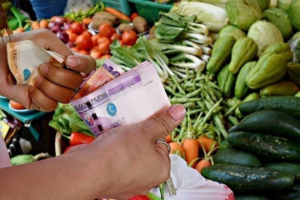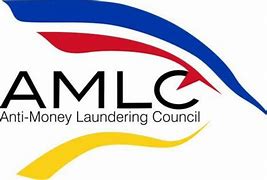Finance Secretary Ralph Recto on Thursday, August 1, expects a higher inflation rate for July but will remain within the government’s target range of two to four percent for the entire year.
Recto attributed the anticipated uptick in inflation to a low base effect, indicating that prices are likely to rebound from the relatively low levels recorded in the same period last year.
“We anticipate a higher inflation figure for July compared to the previous month,” Recto said, adding that the impact of Typhoon Carina on the prices of goods is expected to be felt in the next months.
“However, we are confident that it will still be within our target for the year,” Recto also said.
While inflation might increase in July, Recto said it could be offset by reduced rice prices due to tariff reductions, lower fruit prices, and the appreciation of the peso.
The Bangko Sentral ng Pilipinas (BSP), in an announcement last Wednesday, July 31, expects the country’s inflation rate to exceed the upper limit of its target range in July, forecasting a range of 4.0 percent to 4.8 percent. This is the first time this year that the forecast has gone beyond the target’s upper boundary.
The BSP has kept its monetary policy tight, maintaining the benchmark rate at 6.5 percent for nearly a year to curb inflation. However, BSP Governor Eli Remolona has suggested a potential rate cut might be on the horizon for August. The next monetary policy meeting is scheduled for August 25.
Budget allocated for Pinoys affected by inflation
Meanwhile, the Department of Budget and Management (DBM) said the government is set to prioritize cash assistance programs to cushion the impact of rising inflation on vulnerable Filipinos.
In a Palace briefing, DBM Principal Economist Joselito Basilio said the government recognizes the impact of inflation on specific sectors and has allocated funds to address their needs.
“The budget is designed to be somewhat inflation-proof,” Basilio said.
Basilio also explained that the budget includes contingencies for inflation, as reflected in the macro assumptions table of the Budget of Expenditures and Source of Financing.
Budget Secretary Amenah Pangandaman, who was also in the briefing, acknowledged the need for targeted interventions to help those most affected by inflation.
“We have what we call cash assistance and aid programs,” Pangandaman said. “For the National Expenditure Program 2025, a total budget of P253.3 billion is allocated for aid,” she added.
The National Expenditure Program (NEP) for 2025 includes P253.3 billion for aid, with the Department of Social Welfare and Development (DSWD) receiving the lion’s share of P205.5 billion.
Key programs under DSWD include the expanded 4Ps with an allocation of P114.1 billion, social pensions at P49.8 billion, protective services at P35.1 billion, sustainable livelihood program at P4.4 billion, and the Philippine food stamp program at P1.8 billion.
Other agencies also have their respective programs to address the impact of inflation. The Department of Health has allocated P26 billion for medical assistance and P1.25 billion for cancer assistance.
The Department of Labor and Employment has P14.1 billion for the TUPAD program, while the Department of Transportation will continue its fuel subsidy for the transport sector with P2.5 billion. The Department of Agriculture has allocated P50 million each for fuel assistance to farmers and fisherfolk.
Pangandaman emphasized the expansion of the Pantawid Pamilya program to cover the first two years of a child’s life,resulting in increased funding.
These initiatives are part of the government’s overall strategy to mitigate the effects of inflation and provide support to those most affected. (TCSP)




